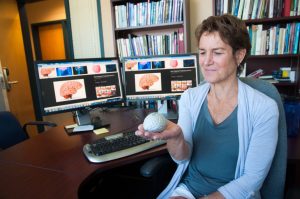Alysha Baker is a forensic psychology researcher who asks tough questions about truthfulness and deception
NATURAL CURIOSITY. Getting comfortable asking why. These traits, combined with […]
The post Alysha Baker is a forensic psychology researcher who asks tough questions about truthfulness and deception appeared first on UBC’s Okanagan News.
Faces aren’t always to be believed when it comes to honesty
UBC researchers have determined that certain facial features, not the expression, influence whether people think someone is trustworthy.
The post Faces aren’t always to be believed when it comes to honesty appeared first on UBC’s Okanagan News.
Faces aren’t always to be believed when it comes to honesty
UBC researchers have determined that certain facial features, not the expression, influence whether people think someone is trustworthy.
The post Faces aren’t always to be believed when it comes to honesty appeared first on UBC’s Okanagan News.
Faces aren’t always to be believed when it comes to honesty
UBC researchers have determined that certain facial features, not the expression, influence whether people think someone is trustworthy.
The post Faces aren’t always to be believed when it comes to honesty appeared first on UBC’s Okanagan News.
Faces aren’t always to be believed when it comes to honesty
UBC researchers have determined that certain facial features, not the expression, influence whether people think someone is trustworthy.
The post Faces aren’t always to be believed when it comes to honesty appeared first on UBC’s Okanagan News.
Faces aren’t always to be believed when it comes to honesty
UBC researchers have determined that certain facial features, not the expression, influence whether people think someone is trustworthy.
The post Faces aren’t always to be believed when it comes to honesty appeared first on UBC’s Okanagan News.
UBC study examines brain performance and left-brain, right-brain cooperation
New research out of UBC suggests that the two halves of the brain are not always better than one.
The post UBC study examines brain performance and left-brain, right-brain cooperation appeared first on UBC’s Okanagan News.
UBC study examines brain performance and left-brain, right-brain cooperation
New research out of UBC suggests that the two halves of the brain are not always better than one.
The post UBC study examines brain performance and left-brain, right-brain cooperation appeared first on UBC’s Okanagan News.
UBC study examines brain performance and left-brain, right-brain cooperation
New research out of UBC suggests that the two halves of the brain are not always better than one.
The post UBC study examines brain performance and left-brain, right-brain cooperation appeared first on UBC’s Okanagan News.
UBC study examines brain performance and left-brain, right-brain cooperation
New research out of UBC suggests that the two halves of the brain are not always better than one.
The post UBC study examines brain performance and left-brain, right-brain cooperation appeared first on UBC’s Okanagan News.


